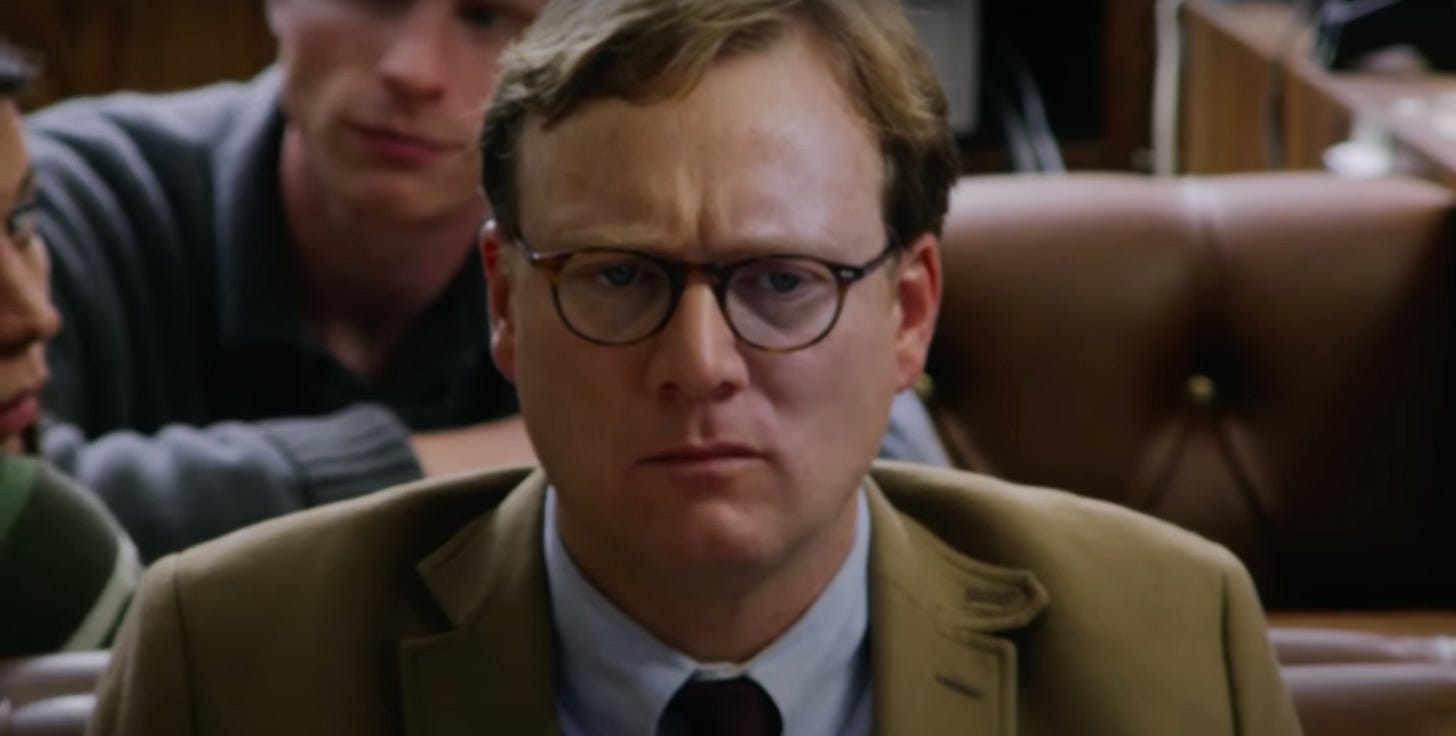'Review' resonates as a reminder we shouldn't be our jobs
Forrest MacNeil's tragic fall is a stark warning in favor of work/life balance

I am not at all the first person to realize that our collective relationship with our jobs is pretty deeply flawed. The far reaching effects and influence of capitalism have created a damaging idea that a person is only as valuable as their work, and that a career should be the main–if not the only–source of personal worth. I’ve seen this pressure grow as the pandemic continues, with many people working from home, where the separation between work and everything else begins to blur. I’ve thought about it a lot as I see friends and acquaintances struggle with their relationship to their jobs and even as I navigate the never-ending anxiety of freelancing writing and retail work in a pandemic. It’s something that was in the forefront of my mind as I watched Review for the first time through this week and realized how timely it still feels.
Review is a show that ran for three seasons on Comedy Central in the mid-2010s, based upon an earlier Australian show. Across just 22 episodes, the series follows Andy Daly as Forrest MacNeil, the host of the fictional documentary show Review. The premise of this show is simple: people send in real life scenarios, like eating pancakes or getting in a fight, and Forrest does them and then gives them a review on a five star scale. Along the way he’s aided by co-host A.J. Gibbs (Megan Stevenson), producer Grant (James Urbaniak), and buoyed briefly (more on that in a second) by his wife Suzanne (Jessica St. Clair).
I first became aware of Review through individual clips posted to YouTube, which showcased the more immediate humor in each scenario based upon the absurdity of Forrest’s attempts at the request. An early review of making a sex tape results in an awkward night for Forrest with a sex doll, and a later segment on revenge results in an escalating series of terrifyingly hilarious poop-based pranks. It’s only when viewing the series as a whole that the tragic element of this black comedy comes into focus: Forrest’s commitment to his job swiftly and completely ruins his life.

In watching the entire series through, it’s clear that this was always the message of Review. It begins in earnest in just the third episode of the series, when a viewer asks Forrest what it’s like to get a divorce. As A.J. and any rational person would point out, getting divorced for a television show is not at all worth it. But that doesn’t stop Forrest, who goes through with it, devastating Suzanne and himself. For the rest of the series Forrest desperately tries to repair that relationship as Suzanne resents him more and more, and his dedication to reviewing sends him further into a spiral.
Over the course of the show, Forrest is shot, beaten, made a fool of multiple times, and ruins multiple new relationships as he steadfastly goes through with whatever anyone asks in him. It’s nowhere near as extreme, but many workplaces demand this same level of dedication from us, asking us to forego time for ourselves and with our loved ones in order to serve our supposed purpose as part of a company. While it’s not like the vast majority of jobs literally ask workers to get a divorce, an unbalanced life can easily lead to problems in a relationship. Most jobs don’t expressly ask you to get struck by lightening, the stress and overwork can cause physical injury.

Forrest ends up in the hospital… more than once.
I also appreciate that while Forrest is definitely awkward (Daly plays him perfectly) and often compounds the situations he’s in, Review goes a long way towards pointing out that it’s the job itself and his superiors who are mainly responsible for his misery. As is revealed to Forrest late in the show (but quickly discarded by him), the pain and humiliation is built into the core of the show itself, as people only want reviews of things they are too afraid or cautious to do themselves. And while some of his coworkers and Grant are superficially supportive, they all encourage him to keep going, especially Grant. Multiple times throughout Review Forrest almost quits or finds happiness, only for Grant to talk him out of it. It is the system and those who hold the most power who are ultimately responsible for this damaging relationship to work we have.
It’s also important to stress again that Review is a fun watch because it is hilarious. Built on absurdist humor as the situations grow more outlandish and Forrest’s life unravels further, each episode features at least one moment of brilliant comedic genius. The writing is smart and tight, with many tiny recurring jokes and some payoffs that take multiple episodes to unfold. The main cast all turn in great comedic performances, and the first two seasons are loaded with excellent guest actors like Fred Willard, Maria Thayer, Jason Mantzoukas, and Allison Tolman. If you’re not sure if you’ll like it, I strongly encourage you to check out some of the clips on YouTube like I did.
It is a strange time, but I hope that we can start to more seriously interrogate how we relate to our jobs and create a healthier approach to how we live and work. Review is a funny show with a deeper message about what could happen to us if we don’t fix this. No one wants to be a Forrest MacNeil. I’d give being him half a star.


